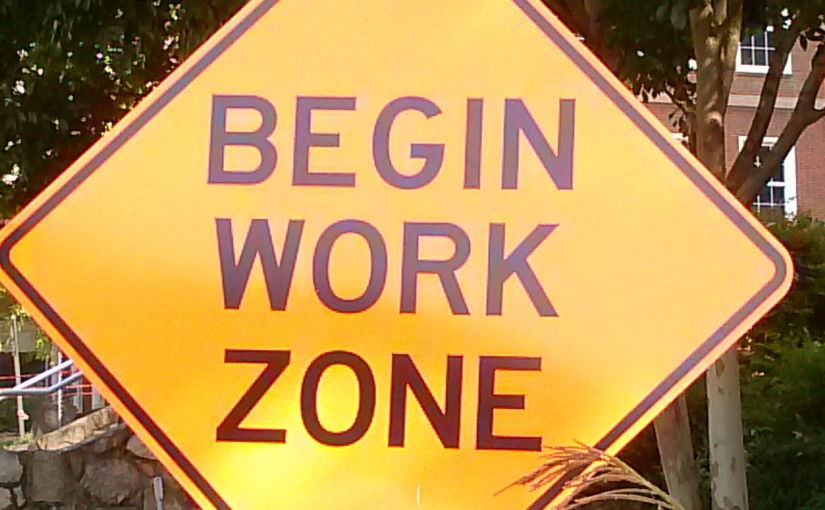Helpful tips for parents of disabled children
For the past twenty years, there have been many pediatricians, educators, and government administrators who have recommended I sign my kid up for disability services. “Get him into the system” they would say. I flat out refused. My response was always the same, “ If he can work, then he should. No child of mine is going to sit around all day watching TV while collecting a check from the taxpayers.” No, teaching him life skills to navigate this big beautiful world was much more important. I was in denial. In my heart, I always thought he would “catch up to everyone else.” Now, I can see the benefit of receiving services; but not for him–for me. There is a certain amount of freedom associated with a child who can advocate for himself independently. While our children benefit by having the skills to be accountable, we parents benefit by having peace of mind knowing that our children can manage on their own.
Legal at 18
There is some truth to the idea that if a child could work, then of course they should. They should earn their keep, be responsible, independent, and make their own choices. Why not instill a work ethic and make a little cash on the side, right? Great–but not so fast. Once a child turns 18, things change. Unless you have been granted legal guardianship, you are no longer responsible for your kidlet. At least that’s what the law says. The challenge here is the idea that our kids are completely on their own.
Events to think about
Parents can be proactive and apply for benefits now for their young adult. I know, I didn’t want to apply for services either until I realized that without the assistance, the future leaves way too much to the imagination. After the age of 25, will your child have health insurance? How will he or she get back and forth to work? What about finances? How will they pay for living expenses if their employment is only part-time? How will your child get to the store to buy groceries–are they able to order grocercies online? How will he or she get to the doctor? Keep in mind that cognitive levels and processing delays might inhibit their independence. We should be careful not to rock the boat. Remember, we no longer have any legal power after they turn 18, but we still have parental responsibility. Knowing he or she might fail, we can’t let them out on their own; at least not yet.
The following are some steps I have taken within the last year. I can assure you that waiting till the last minute will not yield optimum results. The key here is to involve your child in as many of these steps as possible. Whether or not you think your child will qualify for benefits based on your income, I encourage you to make the call to find out about benefits; you might be pleasantly surprised at the outcome.
1) Register your child with the Department of Disabilities
This Department of Disabilities provides assistance in a variety of areas. Once a person reaches 18 the guidelines are different. All the services will be based on your child’s income and not the household income. This is important because it allows for certain benefits such as Medicaid, transportation, mental health counseling, job coaches, life coaches, and independent living services just to name a few. If you have not already registered your child, parents are encouraged to start as soon as possible. People who know me, know I am not a fan of red-tape; I can confirm that there will be plenty of it in this case. Wade in slowly; it will make the process easier.
This department will require a doctor’s note with the diagnosis to prove the disability and the latest psycho-educational evaluation your child received.
2) Sign a Power of Attorney
I am not an attorney and do not claim to be, but in the event of an emergency, you will want to be able to transfer money, view medical records, file taxes and/or assist with legal issues should any arise. A power of attorney, gives rights to parents acting as an agent for the child. It might help with unusual situations. Most likely you will not need it, but keep in mind that you have a child who is over 18 with a disability. You no longer have any rights, and just because there is a disability, it will not change the laws; you still won’t have any rights. Hopefully, you will never need this, but in the event a situation occurs and your child needs assistance, you will want to be ready. As a parent, you will use your own power to educate and guide your child to make his or her decisions independently anyway. Just keep this document in a safe place. It is not about you taking over, it is about you being ready in an emergency.
Parents with children who might be incapcitated with an extremely low cognitive or functioning level
can apply for a guardianship. Please seek a legal professional if you need further assistance.
3) Sign your child up for work-place benefits
Realizing that our young adults are not thinking of retiring right now, some larger employers do in fact offer to pay a percentage into a retirement account. Double check workplace benefits and make sure beneficiaries are listed for any retirement benefits which might be available long term. Some larger businesses, which hire the disabled, have very good employee benefits. Many include but are not limited to health insurance, college tuition, and even paid time off. Remember to check the Medicaid benefits too. You will not want to lose benefits because your child suddenly saved for a rainy day.
4) File Federal and State Taxes
Depending on whether or not you claim your child on your own taxes, you will want to talk to an accountant for the IRS guidelines. Once a person starts working, even with a disability, he or she will need to file taxes depending on the annual income. If this is the case, be sure to address the seriousness of this and help your child understand the need to do this each year. Having an accountant available for your young adult to work with is even better.
5) Support your child’s life skills
As long as your child lives at home, he or she will not become independent. As hard as it is to think about the day they leave, we owe it to our children to give them the skills to become independent. This is of course something that is ongoing and won’t be taught overnight. The Department of Disability might be able to help with independent living skills but every day is a great day to teach something new.




Let’s Talk!